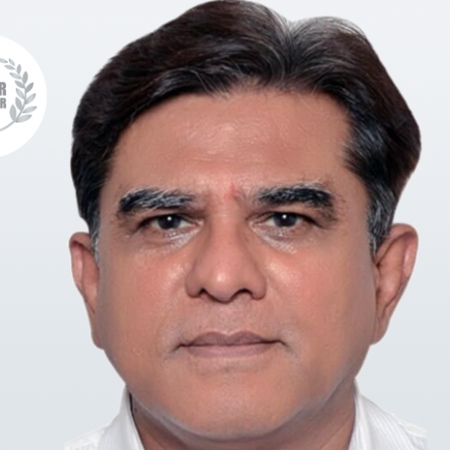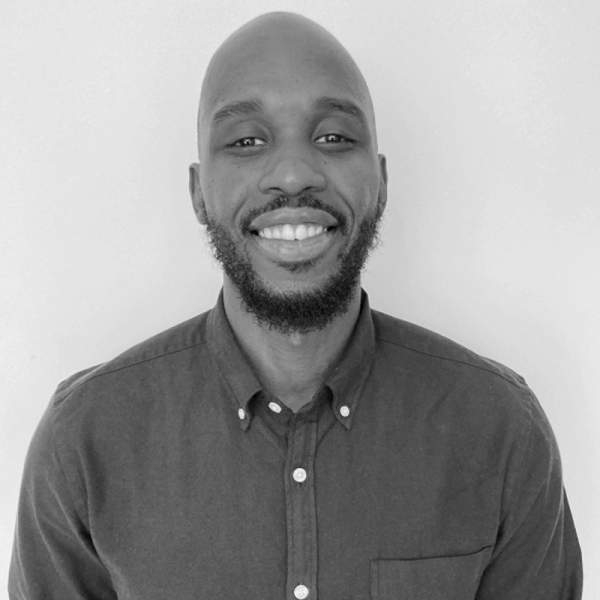April 13, 2022
“I use insights from GPC conferences to help shape my trading strategy for the upcoming months” - Bharat Thakkar


Bharat Thakkar is Sun Impex’s Head of Operations for Africa and India. He has over 20 years’ experience in the pulses sector and a wealth of knowledge on the market in his regions. Jesse Sam spoke with him in March, to get an insight to Sun Impex’s operations, their outlook on the market, and what they are most looking forward to at Pulses 22.
Sun Impex is a strategic partner of Global Pulses Confederation and a key sponsorship partner for the upcoming Pulses 22 convention in Dubai on May 10-12.
Yes, so Sun Impex is a global agri-trading business based in Dubai. We’ve been operating since 2013. We handle a wide variety of pulses from different origins. We have an international team of around 15 people, based in Myanmar, Russia, Algeria, India and Tanzania. In each of these countries we have small teams procuring pulses from farms, which we then supply to destination markets. Our Managing Director, Mr. Sumant Bindal, is based in Dubai, at our headquarters.
We handle around 100,000 metric tons of pulses for our customers in different locations. Some of our biggest customers are on the Indian subcontinent: India, Bangladesh, and Nepal. We also work in China and a few European countries.|
Looking at India specifically, can you tell us about the pulses you sell into that market?
Right now, we are focused on three major products: pigeon peas, black matpe, and desi chickpeas but we are looking to expand into the lentils trade soon. Initially, we were looking to supply lentils from Russia into the Indian market but that doesn’t look viable. So now we are looking at Canadian lentils. But we need different specifications to supply different segments of the Indian market.
Well, in northern India, red lentils (crimson) are more desired; whereas in the south, they prefer green lentils (laird).
That differentiation is driven by how communities use these lentils. So broadly speaking, in southern India, customers are trying to substitute pigeon peas when their price goes up. Pigeon peas can have a yellow colouring. And when you split green lentils, they also have a yellow colour, which makes them an effective substitute.
In northern India, they need red lentils for red lentil soup, which is a popular dish.
So these are some of the key factors shaping lentils demand in India.
We have quite extensive operations in Russia, including procurement and logistics teams. At the moment, we are unable to trade between Russia and India. But like everyone else, we would like to see the situation improve so that markets can go back to normal.
No, we have quite a diverse set of products we trade from Russia and to countries beyond just India. We trade coriander seeds and chickpeas to Nepal, Bangladesh, parts of Türkiye and some European countries.
The last couple of years have been really challenging in terms of global supply chains. We’ve seen shortages of containers, equipment, longer wait times — it’s all been very challenging.
I think we’ve seen the market shift over the last few years. The companies that really succeed now are the ones with the strongest logistics operations.
For us, that starts with having great people on the ground in all of these markets we are buying from. That gives us more insights to what’s happening as well as control over our supply. But that is such an important part of our approach; it allows us to react quickly to changing circumstances.
The other thing is that, as it has become harder to deliver our goods to customers, we have become more committed to getting this right. It is at the forefront of our business model now. For example, we have a policy of booking containers first before we’ve finalized our shipments. That’s obviously more risk for us but we are completely determined that our commitment to customers should not fail, even if that means incurring losses on occasion.
We are very proud to work in so many different markets. A big part of that success is establishing talented and efficient operations teams in all of our different origination markets. But, aside from that, we also have a successful ‘trade partner’ model in each of these countries.
In west Africa, for example, in countries like Benin and Togo, we have exclusive relationships with oilseeds and soybeans producers. We base our quality control people in these countries, so they can work closely with the farmers to ensure the products meet our buyers’ needs. The model is so successful because it’s a win-win. It gives stability to producers and reduces the amount of work they need to do to sell their output. It also gives us highly stable supply chains and, as I mentioned, more control over the products we sell.
Over the last six months, I’d say that things have largely gone back to normal. Of course, there are still safety precautions in place but these are nowhere near as severe or restrictive as they previously were. So all of the tension around Covid-19 has definitely reduced.
Well, I think the most important thing for anyone to know about our company is that we are committed. Our commitment and our word is our value. When we enter into a trade, we never look back. Regardless of changing circumstances — market volatility, supply chain issues, or whatever it may be — we never go back.
That commitment has been the foundation of over success over the last ten years, as we’ve grown from 10,000 tons to 100,000 tons. Our suppliers, customers and other partners know that they can trust us.
You know, I’ve been in the pulses sector for nearly 25 years. I have been to many conferences in my time but I can honestly say that GPC is the best international platform. It’s such a great opportunity to interact with our peers on a one-to-one basis. It’s a chance to hear important feedback from people in the market and access the latest data.
In the past, I’ve used insights from previous GPC conferences to help shape my trading strategy for the upcoming three to six months.
So I am very excited to have the opportunity to see all my colleagues at Pulses 22. In particular, we want to learn about expansion opportunities in Africa, especially Mozambique, Sudan and Ethiopia. And we are also keen to move ahead with plans to establish our business in Canada and Australia. So plenty of opportunities for growth and collaboration.
Disclaimer: The opinions or views expressed in this publication are those of the authors or quoted persons. They do not purport to reflect the opinions or views of the Global Pulse Confederation or its members.